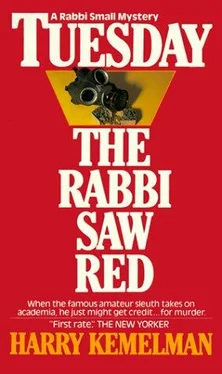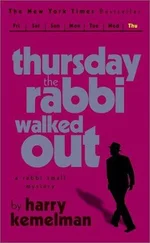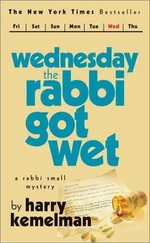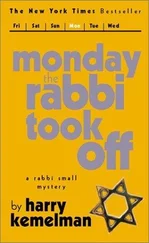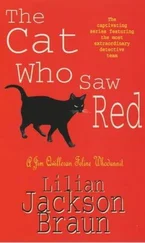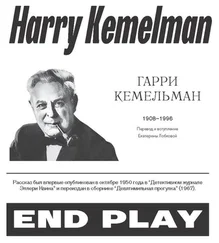"The judge?"
"That's right, well, after dinner, we were sitting on this great big verandah they have, overlooking the water, with this telescope mounted near the railing so you can look at any boat in the harbor and see who's aboard, and a pitcher of Tom Collins right there on the table. It was nice, and we were just talking the way you do after a good dinner, and the judge says, half-joking, something to the effect when was Brad going to realize his potential and perform the duties that were expected of him, and do you know what he meant? He meant that it was Brad's duty as an Ames to serve society and the country, to his fullest capacity. ‘Now, ordinary people don't talk that way because— well, because they don't think that way. I mean, normal people might say when are you going to realize your potential and be a big shot? If you're so smart, why aren't you rich? That kind of thing. But Stuart Ames wasn't thinking of that, he was thinking that his brother had a duty to society that he wasn't fulfilling, he actually thought that way, and the funny thing was that Brad felt the same way, too. So he started to tell about his job, half-kidding at first, like his brother, but really in dead earnest just the way his brother was. I'll never forget it to this day, he said. 'District attorneys come and go, the better they are, the quicker they go, too, because it's just a stepping stone for them to the next office. But assistant D.A.'s they stay on. Now somebody's got to train those D.A.'s, and I guess a lot of it falls to me, mostly because I've been around so long.'"
"I hadn't thought of that, but I can see how it could be true," said Andrew Howard.
«Then he went on to point out that it was the assistants in the D.A.'s office that run the whole shebang, they decide who is going to stand trial and who is going to get a second chance. Not the judge, mind you, not the defense counsel, and not even the D.A., but the assistant D.A, he's the one who decides to prosecute or not, he's the one who makes the deals, well, you know, he made out a good case. I know I was convinced and I'm pretty sure his brother was, and it gave me a new slant on him. I’ve been thinking all along, like you, that he was doing it as a kind of hobby: that he liked criminal law and since he could afford to practice it at this level, he was indulging himself. But by the end of that afternoon. I saw him as a kind of top sergeant who does all the work and makes all the decisions, but let the lieutenant or the captain give the actual order and get the credit. What keeps the whole legal apparatus of the city running is not the judges and the defense counsel or even the cops, but the lowly assistant D.A.
"Bradford Ames unhappily stared after the departing district attorney and tried to decide what to do. In his own mind. Rogers had already tried the four students and found them guilty— of what? Of being radicals, of using bad language, of following a life-style he did not approve of, and for all those reasons he was determined to keep them in jail as long as he could, all the weeks and months to the day of the trial. It was those four daughters of his that were warping his judgment, Ames decided, and thanked God that he was a bachelor. Of course, once the case reached trial, the medical examiner's report would have to come out and there would be a directed acquittal on the murder charge, however it would go with them on the arson charge. But in the meantime, the students would have remained in jail all that time, there was also the danger of a judicial backlash; if the case came up before a prima donna like Judge Harris, for example, he would have plenty to say about the suppression of evidence by the district attorney, he wondered at his chiefs blindness to the political implications and then remembered wryly that he probably was aware of them and assumed his constituency would not mind in the least if he stretched the law a bit to keep these young radicals out of circulation.
Normally, a hint to the defense attorney would take care of the matter, but each of the four defendants was being represented by a different attorney, all of whom were strangers to Ames, the O'Brien boy had retained a young lawyer who had just passed the bar exam; Allworth had someone furnished by one of the radical black organizations; and the girl. Judy Ballantine, whose father was well off, was being represented by a firm of New York lawyers. Only Paul Goodman, the attorney for the Selzer boy, seemed a possibility, but even he was an unknown quantity since he practiced largely in Essex County, not Suffolk. Still, Ames thought he might get a line on him, and if he measured up, risk it. From his years of summering in Barnard's Crossing, Ames had got to know its chief of police, he called him at home that evening. "Hugh Lanigan? This is Bradford Ames."
"Oh yes, Mr. Ames. How are you?"
"Look, do you know a lawyer in your town, name of Paul Goodman?"
"Yes, I know Mr. Goodman."
"He's acting for Abner Selzer, that's the boy who—"
"Yes. I know, sir." Ames sensed the caution at the other end of the line and hastened to reassure Lanigan. "I'm not planning any skullduggery, at least not against him or his client. In fact. I'm trying to help him out a little, but it's pretty confidential and I'd like to know the sort of man Goodman is."
"Well." Lanigan began doubtfully, "I don't know that I can tell you much, he's the lawyer for the temple here, and he's appeared before the board of selectmen a couple of times on zoning matters, usually. I guess he's well enough thought of."
"What kind of man is he?" Ames began to suspect he may have made a mistake in approaching Hugh Lanigan. "Is he accessible? A reasonable man? You know what I mean?"
"Look." said Lanigan. "I got an idea. Why don't you call the rabbi of the temple here. Rabbi Small. Now he's a good man, and bright, ask him about Mr. Goodman. This Goodman is a sort of vestryman of the temple, one of their board of directors, so the rabbi would know all about him.
"The rabbi? Of course! He could tell the rabbi and thus transmit the information to Goodman at one remove, and if the rabbi was adroit, Ames' name need never come into the picture. He thanked the police chief, hung up, and immediately called Rabbi Small, he identified himself and explained that he wanted to discuss the case with him.
"Certainly." said the rabbi. "I have a class tomorrow from nine to ten. I could come to your office any time after that."
Ames hesitated, he felt a certain reluctance in having the rabbi seek him out when it was he who was going to ask a favor. So he said. "Why don't I meet you outside your classroom at ten. Rabbi?"
The bell rang, and the rabbi dismissed his class, he gathered up his books and papers and left the room. In the corridor, just outside the door, a plump middle-aged man was standing.
"Bradford Ames. Rabbi. I hope I'm not putting you to any inconvenience."
"Not at all. My office is just down the hall." As the rabbi inserted his key, Ames asked. "The office is kept locked all the time?"
"All offices. This one has a door-closer which shuts it automatically.
"Ames looked about him curiously. "And that's the desk where Hendryx was sitting?"
"That's right."
"And the bust?"
"Was on the top shelf just above." They sat down, the rabbi in the swivel chair, Ames across the desk, silent as his eyes roamed around the room, as he continued to maintain his silence. David Small asked politely, "Do you have any other questions?" Ames chuckled. "I didn't really come here to question you. Rabbi. I suppose that's what I implied over the phone, but it's more that I want to tell you something."
"All right."
"I'm sure you know the nature of the charges against the four students?" The rabbi nodded. "I think so, arson and felony murder?"
Читать дальше
